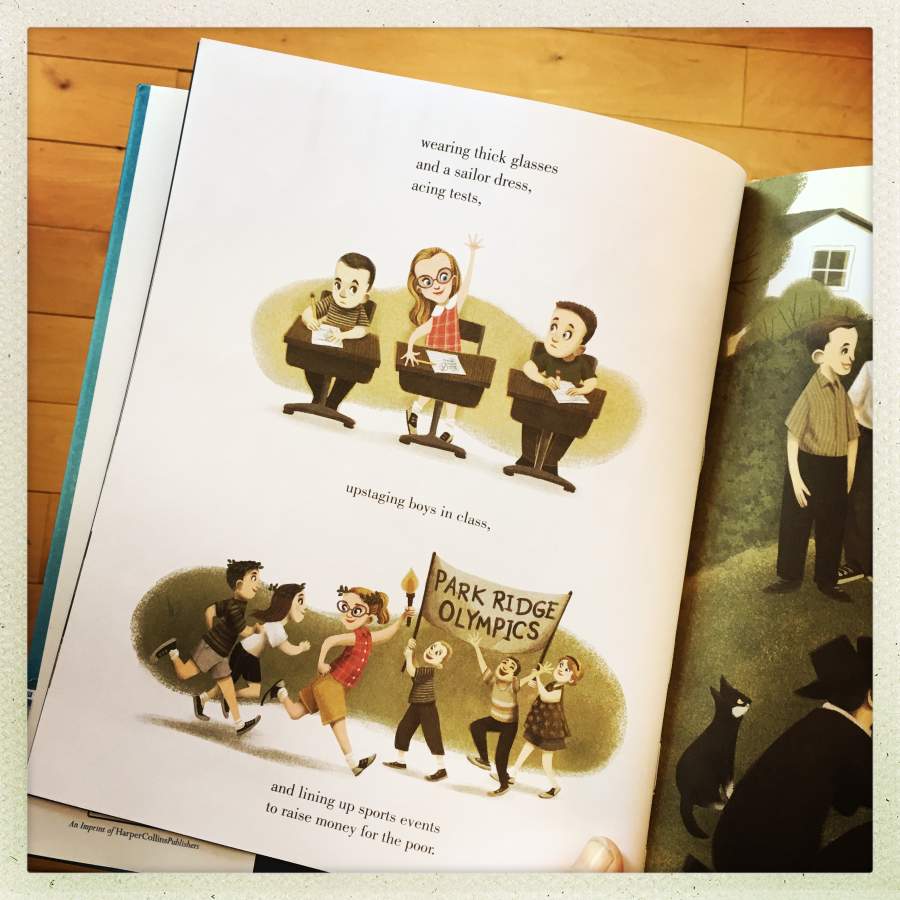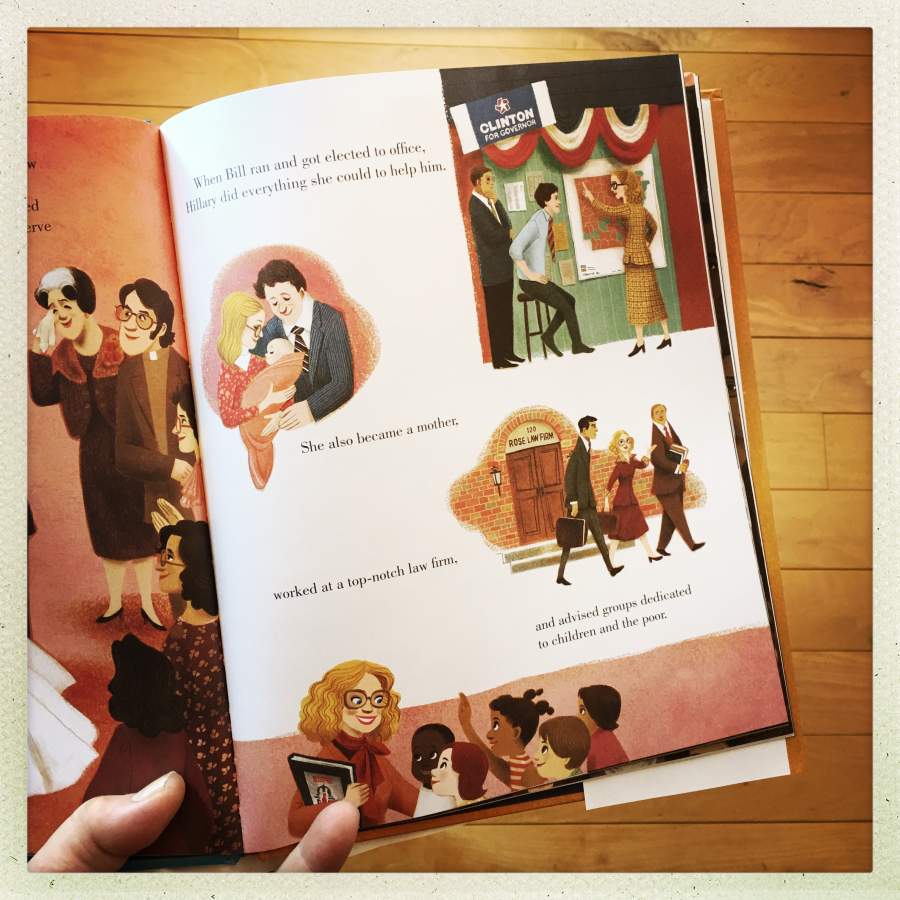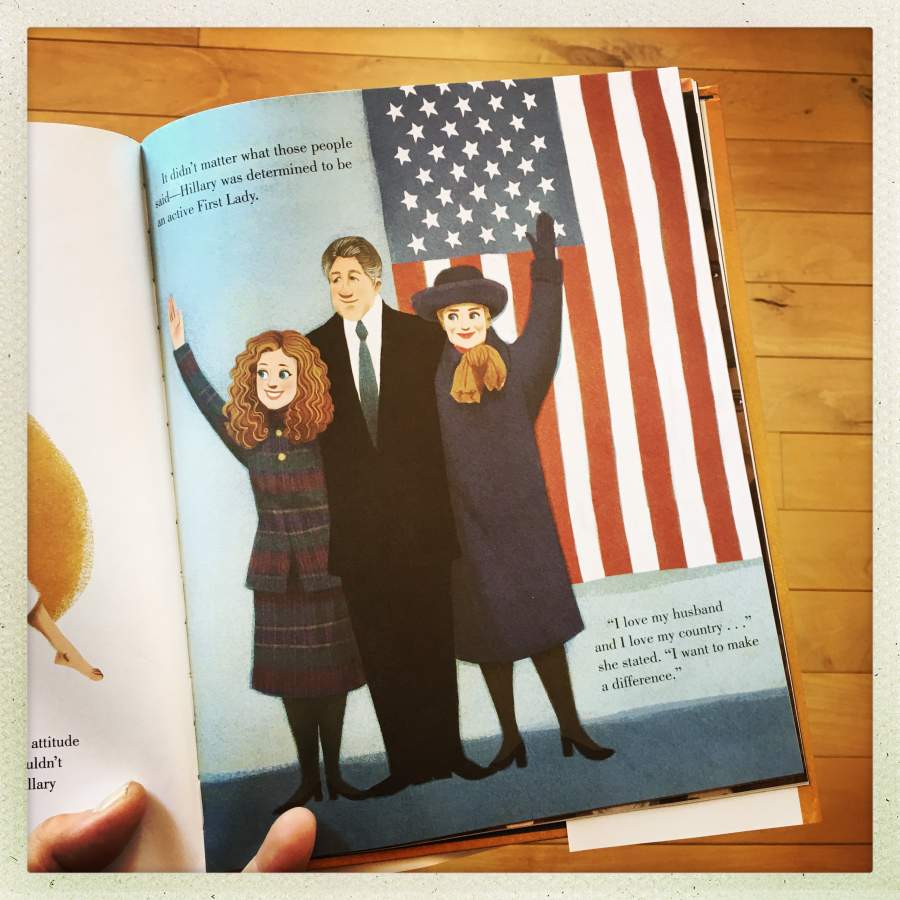It is not enough that our leaders have power; they want to be loved. That’s a fairly consistent pattern in powerful people; I think that sometimes it’s that they want to be able to convince themselves that their route to power was not ruthless and corrupt, or that they didn’t abuse their underlings too much.
Andrew Carnegie, before he died, re-invented himself as a “philanthropist” and threw money at America – in the form of gifts to the upper class. It’s not like he was paying dues at an exclusive golf club, nope, nossirree! It’s not like he did anything for the laborers who did the work that made his money: his philanthropy was aimed at his new peers – the social aristocracy he wanted to be come a paid-in-full member of. Meanwhile, he propagandized us all with his “Gospel of Wealth” which was mostly a bunch of self-justifying motivated reasoning that ignored labor’s role in achieving his vast achievement. What is wrong with these people?
My opinion is that, by attempting to farm plaudits, they reveal their own uncertainty regarding their actions – after all, if they really knew they had accomplished great things, they wouldn’t need to hire people to do public ego-stroke-jobs.
This is a bit of propaganda I stumbled across a year ago, and it’s been sitting on my propaganda-heap while I periodically scratch my head and decide what to make of it. Why does this book exist? Who funded its creation? Why didn’t they spend a couple hundred thousand dollars more to make it a best-seller?

Don’t get me wrong: I voted for her. Because I had no real choice; the alternative was a suit packed full of fish guts and lies.
This is a pretty obvious attempt to build a cult of personality around a politician. In principle, I find that acceptable because that’s all that I think politicians are: a personality cult stuffed inside an empty suit. In order to get to the higher reaches of the US political process, you cannot (until Trump) survive without making the right deals with the right people, without compromising yourself on this in order to get that. That’s why I have relatively little respect for Bernie Sanders, who leveraged his campaign onto the shambolic Democratic Party machine, then discovered that it was corrupt and a shambles – something I expect anyone who has been in politics for 20 minutes to have figured out.
So, it’s OK to have someone write a laudatory book of propaganda about a prospective office-holder. But it seems extremely skeevy, to me, to aim it at kids. Kids have not yet built up a resistance to propaganda. Oh, maybe that’s why it was aimed at kids?


And I’m thinking, “I can’t wait to see what the illustrator did with her ‘we came, we saw, he died’ speech” but, strangely, that moment is erased from history. It’s more important to know that the candidate wore glasses, I guess. This is what Howard Zinn means when he talks about how history is as much what’s not recorded as what is.
One thing needs be said: I think it is important to teach kids about how gender roles affect our politics. I think it is important that Hillary Clinton faced extreme bias due to her gender, and was attacked long and hard by vicious misogynists (called “The Republican Party”) for years. So it’s good to represent to kids that a young woman like Hillary Clinton can be just a consumed by power, just as willing to try to do anything it takes, as a man. But presenting her as though she’s a candidate for sainthood is laying it on a bit thick.

I think that the automatic granting of even a small public policy role to the spouse of the president is a terrible idea; it smacks of aristocracy. If we wish to maintain the facade of a democratic republic, there is no role for nepotism. We’re seeing that blow up in our faces under the Trumps: we have his son-in-law, daughter, and sons all involved in national politics to a certain degree simply because they are his kids. It’s all subtly reminiscent of North Korea, where the party boss’ kid is groomed to be successor.
But, back to authenticity: if the premise of democracy is that people choose their leaders based on what they know of them, is not lying about those leaders anti-democratic? Is not propaganda about prospective leaders merely an attempt to manipulate the electorate? You know, like Russians do.

This is another lovely bit of spin: the reason Clinton didn’t know the voters in New York, where she ran for Senator, was because in 2000, she had never lived or spent much time in New York. She took up residency in that state because when Daniel Patrick Moynihan retired, there was an open seat, and both political parties sought to recruit someone who could win the state: someone high-profile and promotable. Clinton’s not a particularly awful example, but you should remember how that works when someone talks to you of “representative democracy” – the premise is that a politician ‘represents’ their constituents interests. But, sure, how about a transplant from Washington? Oh look at all the people in their quaint ethnic costumes. Is that Madeleine Allbright hovering over her left shoulder? Where’s Henry Kissinger? I see mother Theresa on the fold, and one of the Williams sisters playing tennis. What a happy scene!
Oh look at all the people in their quaint ethnic costumes. Is that Madeleine Allbright hovering over her left shoulder? Where’s Henry Kissinger? I see mother Theresa on the fold, and one of the Williams sisters playing tennis. What a happy scene!
Of course, Hillary Clinton is hardly the first politician to have propaganda written about them. Donald Trum’s The Art of The Deal – which was badly ghost-written – was a pretty good pile of plaudits for douchebaggery long before he had political ambitions.
It makes you wonder if there are any kids’ books about how awesome Stalin was, floating around out there.
Politicians want you to worship them for the worst of all possible reasons: to glorify their egoes, or to increase their chances of being able to remain in power. They’re so ruthless that they don’t draw the line at propagandizing kids; that’s how important power is to them. That is how “trustworthy” they are.


I’ve never seen a children’s book that reads more like a CV before!
That “Born to Lead” subtitle carries a lot of aristocratic baggage from the get-go.
invivoMark@#1:
I’ve never seen a children’s book that reads more like a CV before!
Pierce R. Butler@#2:
That “Born to Lead” subtitle carries a lot of aristocratic baggage from the get-go.
I interpret that as “born with an unusual thirst for power; ruthlessly ambitious.”
There are stories about Napoleon Bonaparte as a child being ruthless, manipulative and (drum roll) being a great leader. “Born to lead!” etc.
Merkel over her right shoulder?
Yes, it is.
However, I don’t want to choose leaders, I want to vote for party policies instead. In our pseudo-democracies we are expected to vote for some person, because “they are an honest and caring person, they believe in God, and they don’t have any extramarital sex,” and after getting elected this politician is supposed to decide what’s best for the country. I don’t want that. I don’t want to vote for “an honest person.” Instead, I would prefer to vote for party policies. For example, I vote for the “Social Democratic Party” without giving a fuck about who happens to be the leader of the party at the time. After all, I’m not voting for the person, I’m voting for the policies a social democratic party is supposed to implement upon getting elected.
Of course there are. Given the personality cult, how could there not be? There’s been a ton of propaganda aimed at Soviet children about how amazing their leaders are. Here are some posters for you:
This one http://press-files.anu.edu.au/downloads/press/n2129/html/image/fig0302.jpg says: “Stalin’s kindness illuminates the future of our children!”
This one http://press-files.anu.edu.au/downloads/press/n2129/html/image/fig0312.jpg says: “Thank you beloved Stalin for our happy childhood!”
This one http://press-files.anu.edu.au/downloads/press/n2129/html/image/fig0316.jpg says: “Glory to great Stalin, best friend of children!”
And this one https://properganderpressblog.files.wordpress.com/2017/05/fig-5-vatolina.jpg?w=608&h=411 says: “Thank you dear Stalin for our happy childhood!”
I know you asked for children’s books and not posters, but I just happen to know a lot about Soviet posters and I think they are fascinating. So I took the liberty to digress.
Anyway, back to books. I tried googling in Russian for children’s books about Stalin, but instead I got a huge amount of children’s books about Lenin. Are you OK with Lenin instead of Stalin? Here https://pikabu.ru/story/lenin_i_deti_3991840 you can see a scanned children’s book about Lenin. I’ll translate the beginning. Let’s start with the cover. The title translates as “Lenin and Children,” the cover page also informs us about the name of the author and publisher. The publisher’s name translates as “Children’s Literature.”
Now, on page 3 we have a story called “Cat Vaska” (“Vaska” being the name of the cat). I’ll translate the beginning:
Cool, huh? Afterwards the girl says that the cat is not lazy at all and good at catching mice. Lenin says that this, after all, is his main duty. Lenin suggests they see whether the cat can do tricks. Lenin starts playing with the cat, he teaches the cat to jump over his stretched hand. Afterwards they feed the cat, he gets a bowl of warm milk for breakfast. After this, the story goes on. You can look at the illustrations, which say what events are going on.
This wasn’t the only book about Lenin. I found many more book titles: “Stories about Lenin,” “Kolka and Lenin. Stories for Children” (“Kolka” being a child’s name), “For Children about Lenin.” Here are pictures of the covers:
https://lh6.googleusercontent.com/-qUVuTQRKR20/UlPmo6kbWpI/AAAAAAAACMQ/AvCnZM1Ku4Y/w500-h615-no/2092-18a.jpg
https://meshok.net/pics/57833060.jpg
https://cs2.livemaster.ru/storage/c0/79/27cff4518ff06d80031fdd9aa443–vintazh-kniga-detyam-o-lenine-1977-g.jpg
jazzlet@#5:
Merkel over her right shoulder?
Yes, looks like. Clearly the message is that Hillary Clinton belongs with that crowd of great women: Mother Theresa, Angela Merkel, Madeleine Allbright, etc. Is that Indira Ghandi or is it Benazir Bhutto? Ah, who cares: head of state! Hillary Clinton should be a head of state!
Note that she stands in front of them: Leader of Leaders.
Ieva Skrebele@#6:
Instead, I would prefer to vote for party policies.
Badgerians don’t even like parties – just policies.
I’m damned if I can see what parties add to politics; they are, in fact, a deliberate attempt to suborn politics by dividing the agenda so they can control it.
“Thank you beloved Stalin for our happy childhood!”
Gah! Said every kulak, never.
Marcus, #4,
I am not entirely familiar with 18th-19th century European biographical traditions, but I wouldn’t be at all surprised if a contemporary biography of Napoleon of all people were modeled heavily on the biographical tradition of the ancient world, particularly the Plutarchan tradition that had furnished the most famous biographies of Alexander and Julius Caesar.
The thing is, ancient biographers were not interested in the childhoods of their subjects in the same way modern biographers are. The idea that a person’s character develops slowly and gradually during childhood, in response to their life experiences, is a relatively new one. Bound up, I expect, with later 19th century and 20th century developments in child psychology and psychology more generally. The ancient paradigm was different. The ancients would not really buy into the idea of “formative years”, instead believing much more in a natural, inherent and inborn character – either inherited from ancestors, infused by the gods or the result of a natural complexion determined by the balance of humours in the body. As such episodes from a great man’s childhood were generally narrated to show early evidence of the emergence of this intrinsic character – Alexander’s taming of Bucephalos for instance, or Caesar’s encounter with the pirates.
I imagine this is the tradition in which Napoleon was keen to see himself, and in which his 19th century biographers were educated.
Which, of course, does not explain a 21st Century children’s book about Saint Hilary of Clinton.
Also, can anyone else see Margaret (hawk, spit) Thatcher over her left shoulder? I ask because ever since a chilling encounter as an undergraduate with an underlit bust of the horrible old bag in one of the seminar rooms of Somerville College, I have a horrible feeling her ghost is pursuing me.
Of course not, not that it made any difference. Case in point: Gustav Klutsis, an artist charged with making posters like those above, and who may even have come up with the rather distinct photo collage style used by the Soviet Union*, “disappeared” during the Terror in the 30s and was apparently executed for Stalin-knows-what.
This excerpt from his wiki-entry seems quite pertinent: [link]
*I have one of his posters and the style is indeed fascinating. It’s neither drawn nor photorealistic, even for something based on old photography techniques. Maybe that’s what happens when you “sculpt” images instead of drawing them.
Of course I agree with you—parties don’t add anything to the politics and I’d rather vote directly for policies. In a fictional dream-land like Badgeria voting for policies would be preferable to voting for parties.
However, this time I was talking about what would be feasible in real life. Voting for policies would require completely changing the existing system and making lots of new laws. That’s not going to happen. However, voting for party policies would be possible. It wouldn’t even require changing the existing laws. In fact, in Europe we already have a couple of parties, which try to offer voters the option to vote for policies. In their advertisements “The Social Democratic Party,” “The Pirate Party,” “The Green Party,” etc. don’t say “our leader, John Doe, is an honest man, vote for him and he’ll make our country great,” instead these parties try to advertise their policies and put emphasis on what new laws they want to implement. I’d like it if more parties chose this approach.
You know what smacks of aristocracy? The concept someone could be born to lead.
Also yes, definitely Thatcher, not Albright. /shudder/
cartomancer, @ #10: The ghost of Thatcher is pursuing all of us.
Ieva Skrebele@#2:
However, voting for party policies would be possible.
In theory, but in practice, not so much. One of the things we notice about the US political system is that the politicians do whatever they want once they get in office – AKA “a policy shift.” So, you get Democrats that also favor permanent war, even though their electorate generally doesn’t.
Of course, if we simply could vote for policies, none of the “representation” bullshit would be necessary. It ought to be rather obvious that its purpose is to ensure the popular will is meaningless.